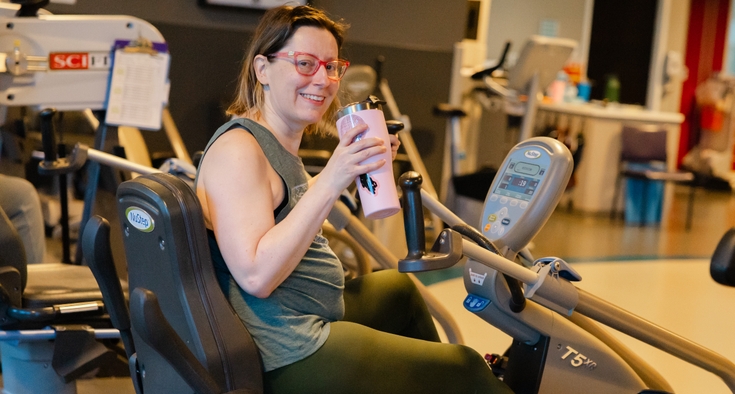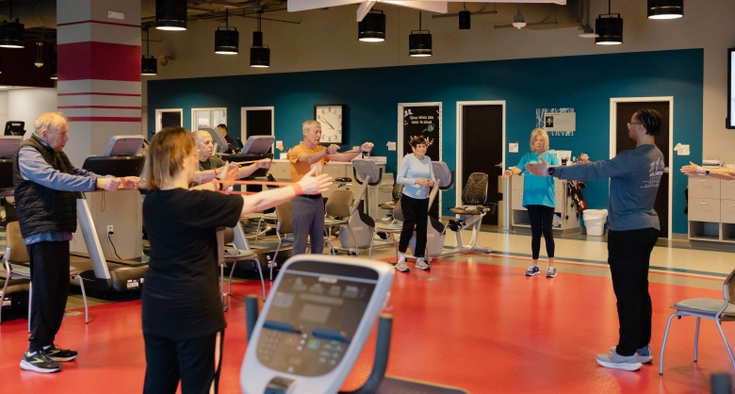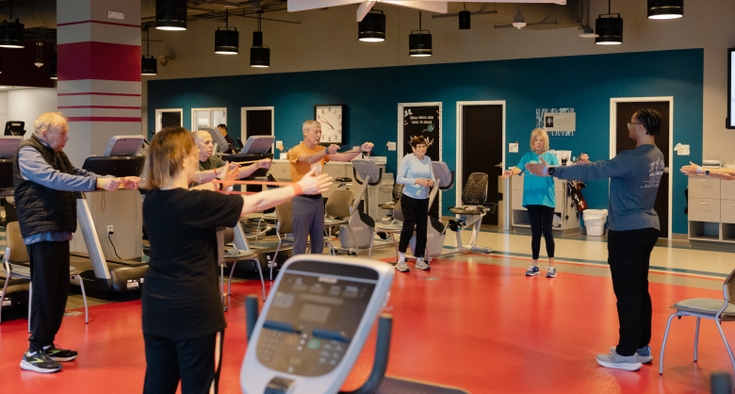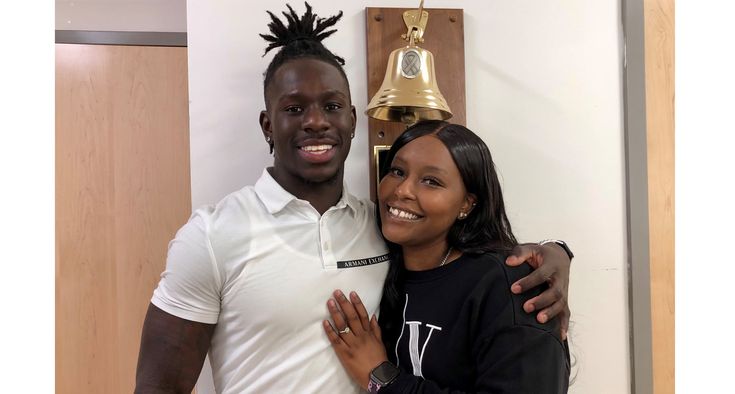Before Sept. 20, 2024, Mary Massie of Charlotte described herself as a singer-songwriter, band member, yoga and tai chi practitioner, girlfriend, photographer, artist and marketing professional.
That day, she added a new descriptor: breast cancer survivor.
Her mother had battled breast cancer, so Massie expected that her own diagnosis may come someday. But she didn’t expect it to happen at the age of 49. It was the most monumental health event she had ever faced.
“For the first couple of months after the diagnosis, I was worried and completely overwhelmed with everything,” Massie said. “There were so many things going on at the same time. I didn’t know how I’d get through this, or if I’d get through it.” Massie was diagnosed with bilateral breast cancer — meaning both breasts were affected — and each had a different type of cancer requiring different treatment.
Find the cancer care you deserve.
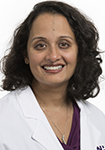
Oncologist and hematologist Dr. Dipika Misra of Novant Health Cancer Institute - Elizabeth created Massie’s nine-month treatment plan, which included medication, chemotherapy, a double mastectomy and radiation.
The plan also included something more familiar to Massie: exercise. “My oncologist emphasized that people have better outcomes when they stay as active as they can during treatment,” Massie said.
Prior to her diagnosis, she had been active — walking almost every day, taking tai chi classes and even getting certified as a yoga instructor. “Exercise helps me with stress,” Massie said. “It’s great for my body, but also great for my well-being.”
But that was before cancer. Now, she was in uncharted waters. She didn’t know how to safely exercise during treatment, nor did she have the energy to research anything new.
Thankfully, Novant Health already offered a medically supervised group exercise program that helps people at any point in their cancer journey preserve their functioning, get stronger, improve treatment outcomes and lower their risk for other illnesses.
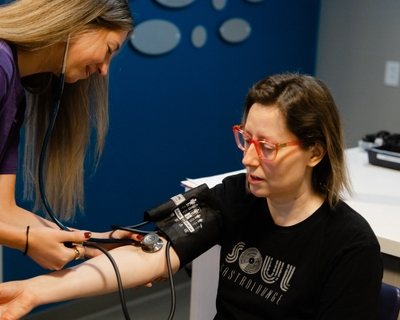
The Cancer Wellness Program is a three-month program that helps people at any point in their cancer journey. People receiving treatment before a surgery can participate in the prehab program up until their surgery date, and then participate for three months after surgery in Cancer Wellness classes.
For those who complete the Cancer Wellness Program and want to continue with the structure and supervision of group exercise classes, maintenance classes are offered as a self-pay option. The program is staffed by clinical exercise physiologists with oncology-specific certifications, a registered nurse and a registered dietitian who support participants through their journey.
Massie was facing a double mastectomy. Participating in the Prehab program — which helps participants build strength before surgery so they’re strong enough for surgery and recover better — just made sense to her. She told herself: “Whatever I can do to get through this better and more easily and to improve my health during it, I’ll do that.”
So while going through six rounds of chemotherapy, Massie participated in the Prehab program from October 2024 to February 2025 before having surgery in March 2025. If she had not completed the program, “It would have been much more difficult to heal,” she said. In May, she started the post-surgical wellness program, which she continued even as she went through 16 rounds of radiation in July.
Some days she was too sick or tired to attend — and that was okay. But on the days that she had enough energy to get out of bed and drive to the program, she found she actually gained energy by being there.
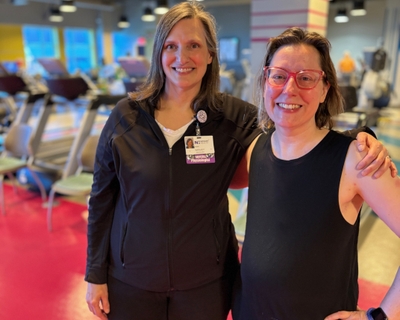
That’s the goal of each session, said exercise physiologist Natalie Fulton, who helps lead the program in Charlotte. Since fatigue is a top struggle for many battling cancer, the program helps participants learn to moderate their energy and get stronger so that daily activities aren’t so draining.
Fulton and other staff personalize the workouts to each participant's level and limitations and monitor them before, during and after, helping them get stronger without overdoing it. “Having someone decide what I should do and encourage me and say, ‘OK, we're going to do this now’ was great,” Massie said.
Program staff also provide education on sleep, hydration, nutrition, stress management and other aspects of health that can be altered by cancer. And they all work as a team.
All that knowledge builds confidence, Massie said, adding that learning about weightlifting and feeling stronger has helped her accept herself along her journey. “I was sad about all the changes in my body, but it's gotten better as I've continued to work out,” she said.
Group support helps with cancer recovery
The group support also helped Massie. “I’m much more likely to work out if I go to a class — and I'm doing it with a group of people who have also been through cancer treatment. That shared experience of knowing we’ve all been through this feels very positive.”
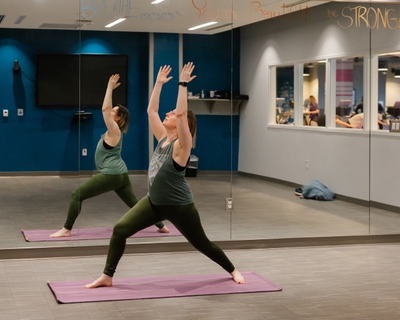
Even though participants are different ages and facing different types of cancer, they face similar struggles. “Chemo is difficult, radiation is difficult, surgery is difficult, no matter what's being treated. And even if you get through that treatment, everybody has fear of recurrence and how to manage that,” Massie said. “But the simple act of moving your body is so helpful. I can’t control everything going on — but this is something I can do, especially with the help of this program.”
In August 2025, Massie completed the most aggressive parts of treatment. She completed Prehab and Cancer Wellness and stayed in the maintenance program, where she continues to improve her fitness as she exercises three days a week.
As she keeps getting stronger, she’s hoping to finish recording her solo album, get back to her visual art inspired by painting programs at the Novant Health Cancer Institute Kemp Bessant Support Center during her treatment, get back to work and “get back to a less cancer-focused life.”
She wants to end with her story with this: “None of us get through this life without support. I’m thankful for all the many ways I’ve had support from so many people. If you’re where I was last September — just breathe. You will get through this.”
Call 704-384-5223 to learn about programming at Novant Health Cancer Institute Kemp Bessant Support Center.
How Mary made it through the last year. And what’s next.
She had recorded four tracks for her solo album, was gathering up the courage to teach yoga after years of practicing and had just started a new job. Then she was diagnosed with bilateral breast cancer — cancer in both breasts.
For Mary Massie, the next year became an ongoing lesson in acceptance: “I don’t have a lot of control over some things in my life — and I have to be okay with that.”
Massie had to quit her new job and put her creative projects on hold as she completed treatment. In addition to exercise and arts programming (see article above), here’s where she put her energy as she healed:
Mantras: Two truths she focused on were, “I can do hard things” and “A lot of this is temporary.”
Gratitude: Massie is part of a mindfulness book club, where she’s learned techniques to deal with fear. “What you focus on is where your world and mind is,” Massie said. “Finding gratitude and focusing on what is good around me — even going through all this — has been very helpful.”
She wrote in a gratitude journal almost every day of treatment. “All this stuff was really difficult and sucked, but at the same time, I was thinking about my mortality. I’m grateful to be alive and realize how short life is.”
Now that Massie is done with treatment, she’s tiptoeing back into recording and work. Her first post-cancer gig: Photographing an event for a nonprofit that serves hospitalized children. She’s nervous — “But there’s also a part of me that’s like, ‘You got through the toughest year ever. You’ll be fine.’”
As she faces questions about her future like, “Will anyone hire me? What job will I do? Will it be a negative thing that I had cancer?” she keeps reminding herself: “I didn’t know I would get through the year — and I did.” And instead of fearing the unknown, she’s approaching it as “the wonderful unknown.”
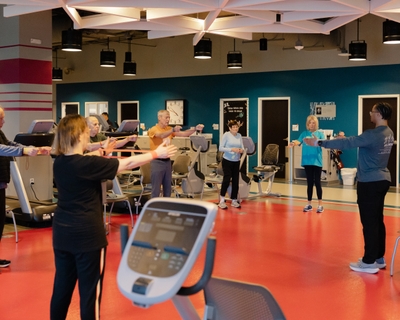
Getting a referral
If you are interested in the Cancer Wellness Program, your doctor or other provider can place a referral to REF282 to any of the following locations based on patient preference:
Presbyterian Medical Center Cancer Wellness - Charlotte
Huntersville Medical Center Cancer Wellness - Huntersville
Matthews Medical Center Cancer Wellness - Matthews
Brunswick Medical Center Cancer Wellness - Brunswick
Thomasville Medical Center Cancer Wellness - Thomasville
Rowan Medical Center Cancer Wellness - Salisbury
Forsyth Medical Center Cancer Wellness - Winston-Salem





